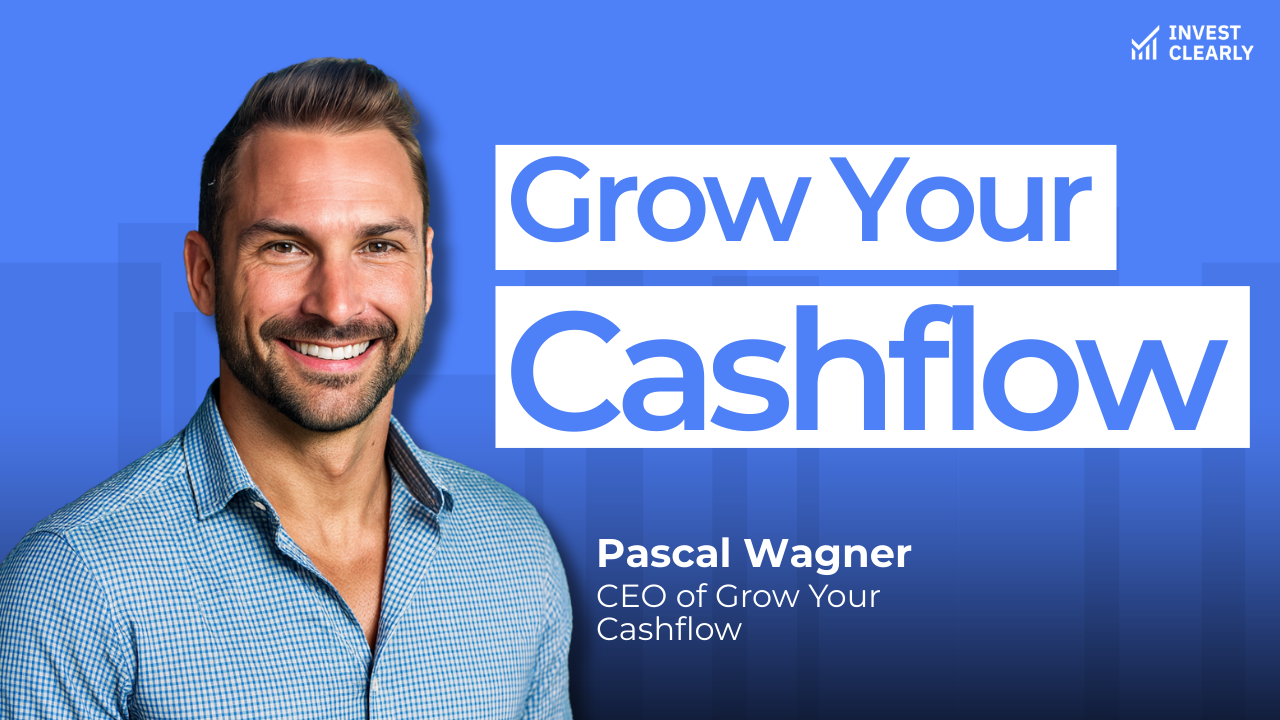
How to Pay Down Your "Ignorance Debt" Before It Costs You $100K with Pascal Wagner
Never miss an Invest Clearly Insights article
Subscribe to our newsletter today
In this conversation, Pascal Wagner shares his journey from working in venture capital to managing family finances and investments. He discusses the importance of having a clear investment strategy, the challenges of evaluating deals, and the common mistakes that new passive investors make.
Pascal emphasizes the need for a robust deal flow and the significance of understanding the sponsor's track record.
How to Pay Down Your "Ignorance Debt" Before It Costs You $100K with Pascal Wagner
[00:00:00] Pat: What do you see as the biggest mistake people are making right now when they come to you?
Pascal: Everyone thinks they have a problem with confidently evaluating a deal, and what the real problem is that they don't have a strategy. You're trying to pay down the ignorance debt as quickly as possible so that you don't pay it in $50,000 or $100,000 chunks by doing a bad deal.
[00:00:28] Pat: Investors and operators, welcome back to the Invest Podcast. Today's episode, we sit down with Pascal Wagner, a former VC analyst at Techstars and now full-time LP. What began as a way to support his mother's retirement has evolved into a structured, system-driven approach to passive investing. We talk about the checklist he uses to underwrite deals, why most LPs face a pipeline problem, and how he tracks over 700 private opportunities. Pascal also shares his views on sponsor selection, transparency, and what he believes needs to change in passive investing. If you're refining your LP process or building one from scratch, this conversation is worth your time. Let's get into it.
[00:01:26] Pat: All right, Pascal. First of all, thank you so much for joining me. It's been really awesome working with you, getting to know you, chatting all the time, meeting you in person at Best Ever conference. To kick it off, why don't you tell us a little bit about you, your background. I know we were talking—you have a coaching program for LPs as well. Let us know a little bit about yourself.
[00:01:45] Pascal: My story is I was working at a venture capital firm called Techstars. One of my roles was to basically find all the companies within our ecosystem, apply them against the filter, and then decide which opportunities to present to the team and tell them which ones I think we should deploy money into. So I started out learning how to find, manage, and deploy capital at an institutional level.
[00:02:11] While I was there, my dad passed away from old age, and all of a sudden my mom inherited a bunch of money. She's retired, age 65, and had no plan, no income. I basically had to step up and figure out how to leverage the capital that she had inherited and help her retire and live off that income for the rest of her life.
[00:02:35] I had to figure out—I worked in venture capital, I kind of understood how these things worked. I was in a mastermind group called GoBundance where people actually lived off of their investments. As I dug in, I called financial advisors and all of them basically wanted me to keep our money in the market and it didn't provide real cash flow. I had to learn from mentors like GoBundance and different forums and groups, and I realized that no one really teaches you how to build a cash-flowing portfolio or how to really even be an LP investor.
[00:03:17] It's a bonus for me. I'm an LP investor first. I'm always looking at deals for our family. Then now I have put together a program called the Cashflow Academy, where I teach other people how to go from zero to making their first investment in 90 days. Usually covering anything from putting together a high-level strategy, finding and filtering deal flow, and then confidently evaluating deals to pick what they invest in.
[00:04:01] Pat: Fantastic. So the term family office is often skewed, but you're literally running one for your family. That's awesome. And I've seen you post about it in your newsletter all the time. I think you built up like $120,000 a year portfolio for your mom, right?
[00:04:20] Pascal: Yeah. The portfolio generates around $300,000 a year. The passive part from all of my passive investments is around $120,000. And then I make anywhere from $150,000 to $250,000 in my single-family real estate portfolio a year.
[00:04:42] Pat: All right. So this is great because often when I talk to people evaluating sponsors, you know, how much skin do you have in the game? But a more important question is like, would you accept your family's money? Because that almost is an extreme layer of trust beyond your own risk. How do you manage that evaluation process when it's not just you and it's your family? Is there a massive layer of red flags you have to break through? Walk us through kind of that evaluation process when you do things like that.
[00:05:15] Pascal: Yeah. So maybe I'll start kind of where I started with this process. Imagine, you know, Dad just passed away. It's fresh. You're in shock. You're kind of just making moves and you're trying to figure out, okay, how do I stop the bleeding? Right? You're losing money every month from all the expenses.
[00:05:33] I had a mentor. His name was Mike Klein and he sat me down. After I talked to all the financial advisors and they didn't really give me anything that wasn't outside the market, we put together a plan of like, okay, what is the goal? How much money do I need to make in order to sustain my family? We started at $100,000 and just focused on my mom.
[00:05:58] He helped me kind of work backwards, put it all into a Google sheet and say, okay, if I need to make $100,000 a year, how many investments do I need to make? What return do I need to earn? Is that five $200,000 checks into five different operators? Is it ten $100,000 checks? He helped me kind of really think through that. And I think that's the foundation of the process. It's like, what are you trying to go towards?
[00:06:41] For us it was very clear. I am trying to provide for my mom. So everything had to orient around that cashflow goal. I think that's one—I think a lot of people skip that step. They see deals come through and they're not asking themselves how does this contribute towards my greater goal? And is this the best vehicle to do that?
[00:07:04] I think there's the next stage, which I kind of learned from my experience at Techstars, which is it's very hard to make good decisions if you don't have a lot of deal flow or context. And so that's when I started clicking on every ad, looking at all the different forums. You can find deals on Invest Clearly. You can go onto Best Ever Passive Pockets. There are a lot of different areas.
[00:07:26] I added all that, put it into my own kind of Airtable database that I now share with my list if you sign up to my newsletter. That allowed me to kind of see—I've got over 700 deals in there now. And then you can filter like, okay, at a high level, I want to be in funds. So you can filter by funds and then you're like, I'm interested in this asset class—self-storage. And so all the self-storage funds are the only things that show, and now you have a short list of the opportunities that are on the table that I can then go and figure out, are they worth doing due diligence on? It's not like, oh, I have these deals in front of me. It's no, let's look at the whole landscape.
[00:08:16] Then when you have the two or three deals, the same question would come up that everyone experiences is like, how do I feel confident enough investing in this deal? Are there red flags? That's when I created a checklist. I just go through and I answer every single question in the checklist. First, I watch the webinar. If I'm still interested in the deal after going through the checklist with the webinar or the deck, then I'll schedule a call with the operator, fill in the remaining questions that I couldn't just by watching the webinar.
[00:09:05] After you do that by two or three deals, there's no guessing. I very easily know, oh, out of the three deals, this third deal has 15 things I don't like about it, and the first deal only has two things I don't like about it. Are these two things things that I can live with? And if the answer is yes, then I make the deal, right?
[00:09:33] I learned a lot of that with Techstars because you don't know—similarly in passive investing, you don't know if your deal or your investment worked out until several years later. But the idea is that with every investment or every turn, you learn something, add that learning to the system, and then now you're iterating and getting better moving forward. It's way too easy to get stuck and ask myself, like, oh, do I still really want to do this or not? And so to solve that problem, I was like, I'm just going to follow the system. It's going to be imperfect at the beginning, but that's the only way I can iterate and improve. And so that's why I'm a huge fan of using that process.
[00:10:35] Pat: Sure. That's awesome. And I mean, I went through the same thing and I often talk about my early foray into real estate where I made a ton of mistakes, but I was like, I know it was me. It wasn't the real estate investing industry—it was me and I had to learn from those mistakes. So I get it. And so you have a really interesting position and perspective. You came from obviously VC and startup investing is much different than real estate private equity, but you have that investing experience and you're also working with LPs that are probably doing this for the first time, that maybe they have a full-time job and they're getting into passive investing for diversification.
[00:11:12] You had your stages that you went through and your trial by fire. What do you see as the biggest mistake people are making right now when they come to you and they say, I want to do this. Maybe I made an investment and I made the wrong decision, or maybe I am looking at these three deals. What are people getting wrong early on?
[00:11:35] Pascal: It's everyone thinks they have a problem with confidently evaluating a deal.
[00:11:46] Pat: So funny. I do too. I think I have that problem, so yeah.
[00:11:50] Pascal: And what the real problem I find is that they don't have a strategy.
[00:11:56] Pat: Mm-hmm.
[00:11:58] Pascal: Every time a deal comes in your inbox within five seconds or a minute or whatever, you should pretty much know if this is worth your time or not, based on your strategy. Okay. My strategy is I'm only interested in funds in self-storage. Cool. If I get a self-storage syndication, that's not part of my buy box. I don't need to spend any time on it, and I think just with that simple clarity that rules out most of the deals that people are looking at.
[00:12:12] And I think maybe one of the reasons why people don't do that is then the next problem that shows up is, oh, I don't have enough deals. And so maybe I need to go back on my buy box. And I think that's the wrong move. I think the better move is to go get more deal flow. And so that's a core reason why I created that database. And then keep subscribing to everything and my team organizes it all into there so that I have all the context and the deal flow that I need in order to successfully execute having a buy box.
[00:13:15] Pat: Yeah. Do you have a framework of how many deals is enough to look at before you kind of make a decision? I'm sure it's different for every person, but I didn't know if you follow a certain strategy. It was like, hey, I get every single one, and I just rule out the ones that are no good.
[00:13:34] Pascal: I don't know. I think it kind of depends. So I think my perspective is I would love to know the whole landscape. You know, it's like if you've never invested in the stock market and someone tells you to buy a stock and you don't know that there's 10,000 different stocks that you can buy, then the likelihood that you're going to make a good investment is close to zero. But if you sit back and you're like, okay, there's 10,000 different stocks, there's blue chip stocks, there's dividend stocks, there's consumer goods, there's energy, you know, whatever. And you start to realize like, okay, there's different sectors.
[00:14:26] And now I can approach picking a stock with intention and understanding how a stock makes sense in context. That's how I think about that.
[00:14:44] Pat: That's great. Okay, so we talked a lot about the deals, right? The asset—
[00:14:48] Pascal: I want to add one more point. So, you know, I think when it comes to equity deals, they kind of come up, at least in my database, they come up—you know, I'm adding new ones every week and so, you know, maybe even 10 a week at this point. And I think I'd like to ramp that up to just make sure I have the best possible deal flow.
[00:15:10] But when it comes to debt funds, you know, for example, I have an evergreen debt fund sheet where I've been—every forum I'm on, every ad I see, I've started creating a master list. It's got 98 different opportunities on it that anyone can invest into. And so now I have a landscape of all the deals I track, what did they make in 2022, 2023, 2024, and okay, were the returns consistent.
[00:15:37] I can then easily go and say, okay, I might not have the entire geography of debt funds or evergreen funds, but you know, I have a pretty solid list. And now I can say, okay, I'm only interested in funds that have had consistent returns above 8% the last three years. Cool. Now 80% of the list goes away, then it's like I filter by, I want something that has monthly distributions and the investment minimum is less than $100,000.
[00:16:08] And now I have a real short list that helps me figure out, okay, I have a much higher likelihood of choosing the best, safest funds by having that context.
[00:16:23] Pat: Sure. Yeah. Extremely prescriptive it sounds like. Which is interesting because I haven't—I don't think I've necessarily talked to many people whose buy box has been based on, I would say, I don't want to really say historical performance because that's not accurate, but they have a, oh, I want multifamily cashflow opportunities, blah, blah, blah, blah. You are essentially saying, I look at everything. Are you actually—let me not put words in your mouth. Are you focused on a specific asset class or is it you see deals across all asset classes? You go to the spreadsheet. Does it make sense? And regardless, you're looking at them.
[00:16:59] Pascal: Yeah, I think it's the latter. I think this is a mindset shift. Most people take what's given to them versus thinking about how do I want to design my life and let me go find things that serve that goal. That's where we should all be sitting, right? So if my goal is $100,000 in cashflow a year, then my criteria is like, what is the most consistent, lowest risk opportunities that help me do that?
[00:17:36] Some are in private credit, some are in cannabis, some are in loans or debt funds. Some are in fix and flip, some are in commercial. You know, and then I think you can decide, do I want to specialize in an asset class because I think that I, one, I love the trajectory of this asset class over the next decade. I think people will always need a place to live. And, you know, I think I will get better at picking deals over time by just focusing on one asset class. And I don't care as much about concentration risk.
[00:18:16] For me, I think about it as I want to invest in funds so the returns aren't as volatile and I want to diversify across a bunch of different things. And so I think I differ in that way, but I think it's really the mindset of what do I want and not settling for things unless they meet what I want.
[00:18:42] Pat: Yeah, it's such an interesting narrative shift and mindset shift where I feel like there's a massively split message between diversification and specialization. Like, only look at this one asset class deal, specialize in that, but also diversify your risk type of thing. So it's interesting to hear that from you. Yeah, that was pretty cool.
[00:19:42] Pat: We talked a lot about deal flow, deal evaluation. I'd love to learn more about how you think about the actual jockey. After you find—obviously deal flow is coming through. So we look at the deal, we look at the sponsor that's attached to the deal. After the deal flow crosses off or checks those boxes, those early boxes, how do you then shift your attention to evaluating the sponsor? What does that look like?
[00:20:08] Pascal: So, you know, everyone uses and abuses the track record thing, but there are nuances to what track record means. To me it was different in the beginning of my journey. In the beginning of my journey, it was like, I'm trying not to lose money. I think Grant Cardone is someone who I respect. He does these things and I think he has a massive reputation to lose. And so, you know, I also like the deal that I'm investing in, and so I think that's a great place to make a bet.
[00:20:31] You know, I had—I didn't know really anything about track record at that point. I think as I made more investments, I started to realize like, okay, show me the returns in the exact strategy you're using. I was just on a podcast yesterday for Passive Pockets and they said they had a guy there that was doing buying malls. When you looked at his track record, all of the biggest returns came from development of mall projects. But the fund opportunity that we were looking at was mostly value-add type projects.
[00:21:32] And so it's like a lot of people get blinded by, oh look, they've got great returns. And it's like, okay, but this is not a development deal. So those are kind of irrelevant. Let's look at the returns, which were much lower, but still good, you know, 20+ IRRs, but lower for their value-add type projects.
[00:21:56] So it's like, you know, and then it's like, okay, if they haven't had a capital call, they haven't lost money, you know, at some point you need to take a risk, right? We still need to look at the deal. Does the deal make sense? But, you know, they'd been doing this for 30 years and every single deal's done well. And it's like, okay, if the macro picture looks good and the sponsor generally looks good and you trust them, it's like when I worked at Techstars and Venture Capital, you basically just had to make that same bet.
[00:22:15] You're betting on the jockey. And I think it's actually a lot easier here in real estate because they have a track record of doing the thing for 5, 10, 20 years. Whereas in the startup world, you know, you're really just trying to judge like how much hustle do they have and do you think they can figure it out? And I think a lot of that's the same here with real estate investing. It's like, okay, it looks like they are smart guys. They're able to keep doing it. Do I think they'll figure it out if they get into something sideways and it's like, if I think so, then check. Let's move on to the next step.
[00:23:09] Pat: Yeah. Yeah. We talk a lot about a contextualized track record. A lot of people will align that to time-based, you know, like, oh, okay, we were in a world that went up into the right the last 10 years. Is that just a product of that or are they a great operator? How so in your scenario, would you say that is a learned skill or do you think—it probably isn't easy for an LP to distinguish, oh, this track record came from development deals, I'm being presented a value-add deal. Does that become a learned skill just by doing this over and over again? Or how can someone pick up on something like that maybe without the experience?
[00:23:50] Pascal: It's by listening to these podcasts. I mean, you know, all throughout this show I've been mentioning how I started and the problems I had, and you know, I was pretty not sophisticated even though I worked in venture capital and understood—you know, I had to build, I knew where I had to get to, but I still started from zero. And going through different coaching programs or listening to podcasts or joining different forums in order to solve the ignorance debt that you have.
[00:24:22] Pat: I like that.
[00:24:23] Pascal: Yeah, I think it's just you're trying to pay down the ignorance debt as quickly as possible so that you don't pay it in $50,000 or $100,000 chunks by doing a bad deal.
[00:24:34] Pat: Yeah, for sure. That's—I like that. I like that phrase. That's great. All right, I want to ask you, you know, our famous question that I want to learn a little bit more, maybe talk more about your coaching program and where people can find and all that. So in every episode I ask people, what part of passive investing do you think needs to die?
[00:24:52] Pascal: Okay, so immediately when you ask me the question, the part is fragmentation. This niche of private investing or passive investing or commercial real estate investing is very opaque. You don't understand how many players there are. You don't know how successful they really are. You know, that's kind of the whole premise of why Invest Clearly—
[00:25:23] Pat: Yeah. Yeah. You're announcing our value prop. Keep going. Keep going.
[00:25:27] Pascal: Yeah. And honestly, that's the—you know, all the problems that I'm solving are all around trying to solve the opaqueness, you know, how do you—there is no AngelList, which is, you know, a database of all the startups and the VC funds and who invested in what. You know, there's a Crunchbase that lets you know who's worked for what companies, how many funding rounds have they gone through. You know who all the partners are, when was it founded. None of that kind of exists for this private area of real estate, which I'm wondering is if that's the opening for someone.
[00:26:18] You know, I think it's so easy for someone to start a company, raise a bunch of money, defraud investors, start an entirely new company under a different brand. And, you know, that's hard to follow or track. Unless, you know, they're associated with this other thing and it's big news. I think there's a lot of—I think that's very painful and I think that's—if America can figure out how to make that less opaque maybe with an MLS type thing for houses, but for deals, I bet you there would be a lot more capital formation in the United States and the investors who invest in these deals would, just by design, have more information and be able to make better decisions and be more successful.
[00:27:03] Pat: Yeah. I mean, that's literally our tagline. I 100% agree with you. And I always tell people, it's like, yeah, this is a highly regulated industry, but regulated does not mean transparent. And it's wild how controlled the narrative is behind closed doors. And you know, people will say, oh yeah, we sent you a PPM, we did this, like 400,000 pages that no one really fully knows how to read. So it is opaque and that's—it's tough for investors, especially new ones. But that brings us to kind of what you're doing and sharing your experience. And I'd love to learn more about how you help LPs and what that looks like.
[00:27:46] Pascal: Yeah. So the main problems that you have when you start passive investing, or at least that I had in my journey, are around three core things. The first is, you know, understanding the landscape and putting together a strategy. You know, you're not just investing deal by deal. Each one should contribute to a strategy. And so that's point one.
[00:28:10] Point two is finding and filtering deal flow. It's hard to apply the strategy if you don't have enough opportunities to look at. And then number three is building that confidence in evaluating deals and narrowing down and figuring which one you should invest into.
So I have a couple different ways that I help. When people join my email list, I share with them all of the deal flow that I personally come across, clicking on every ad, joining every group like I mentioned. And you can get that at passiveinvestingstarterkit.com. And it's free. You can get updates every Friday.
[00:28:56] And then people started asking me like, hey, Pascal, I see all these deals. How do I know what's a good deal? And that's kind of when the Cashflow Academy has been born. It started out as just one-on-one calls with me. And now I've kind of realized the recurring problems that people have. And so I have three core sessions where over a 90-day period you work with me one-on-one. And I hold your hand through this process.
[00:29:18] So the first step is, you know, you watch a couple hours worth of content, you have a homework assignment of putting together your strategy, and then we meet and we review together that strategy and see what makes sense. I'm not a financial advisor. I'm not telling—you know, I don't know your whole situation, but I'm giving you my framework for how I approached achieving that $100,000 in passive income goal.
[00:29:49] The second part is, you know, you take the plan and your individual thesis and I show you how to apply all those filters in our database and narrow it down to your top five or 10 deals. And then we meet and you show me, hey, here are the deals that I like. Here's why. Here are some concerns that I have. And then I come in and I say, here are some deals I think you should look at based on your goals. Here are some flags I see. And help you kind of just get some experience looking at a bunch of deals and seeing how other people might look at the same opportunities.
[00:30:35] And then the third part is you go watch a couple—you know, two hours of content. Again, there's a homework assignment. I give you my 100-point checklist. You take one of the deals that we narrowed down in the previous step. You look at the investment deck, you fill it out. Maybe you schedule a call with the operator. Fill out the remaining questions, and we meet and we review what flags did you see? What did you like? What'd you not like? Oh, you know, oh, you got the track record. That's not a real track record. It should—you should be requesting this doc, and if they refuse to give it to you, that's a red flag, you know?
[00:31:13] And giving someone that second perspective. And so the whole point is to hand-hold someone through the process of not knowing where to start to making their next investment in 90 days.
[00:31:27] Pat: That's great. That's awesome. And how do people find that? Where should they go to connect with you?
[00:31:33] Pascal: Yeah. So they can just go to growyourcashflow.io, you know, join the email list. I also have the Cashflow Academy on my website. And you'll see emails about it within our email list. But I mean, it's the exact program I wish I had when I started. And I would've—I'd be a million dollars richer, honestly, if I had something like this.
[00:31:59] And yeah. And as it grows, you know, I've had over 13 people go through the program. Everyone's made an investment and I keep raising—you know, getting better at it and raising the price and it's just—yeah, it's been a lot of fun putting it together and helping people through that process.
[00:32:20] Pat: Good stuff. Well, Pascal, thank you for coming on. Thank you for having this conversation with me. It's been awesome getting to know you. I look forward to continuing the relationship and seeing your program grow.
[00:32:31] Pascal: Cool. Hell yeah. Thanks for having me on.
[00:32:33] Pat: Sure thing. Bye.
Written by
Invest Clearly empowers you to make informed decisions by hosting unbiased reviews of passive investment sponsors from verified experienced investors.
Other Articles
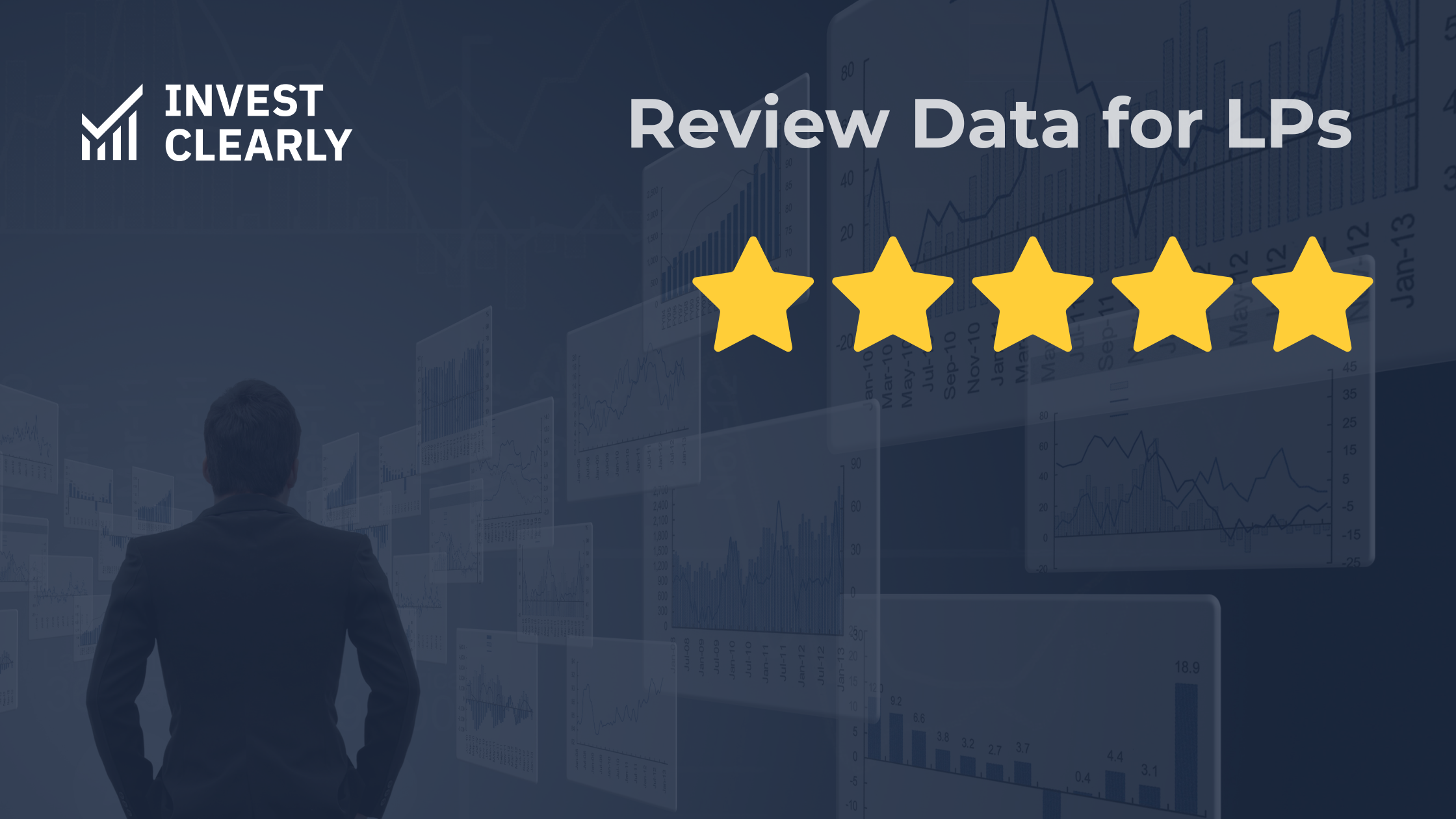
Investor Experience Index Q3, 2025: LP Takeaways
Discover quarterly insights of how LPs rate their experiences with GPs. Get data-driven questions to use when evaluating GPs.
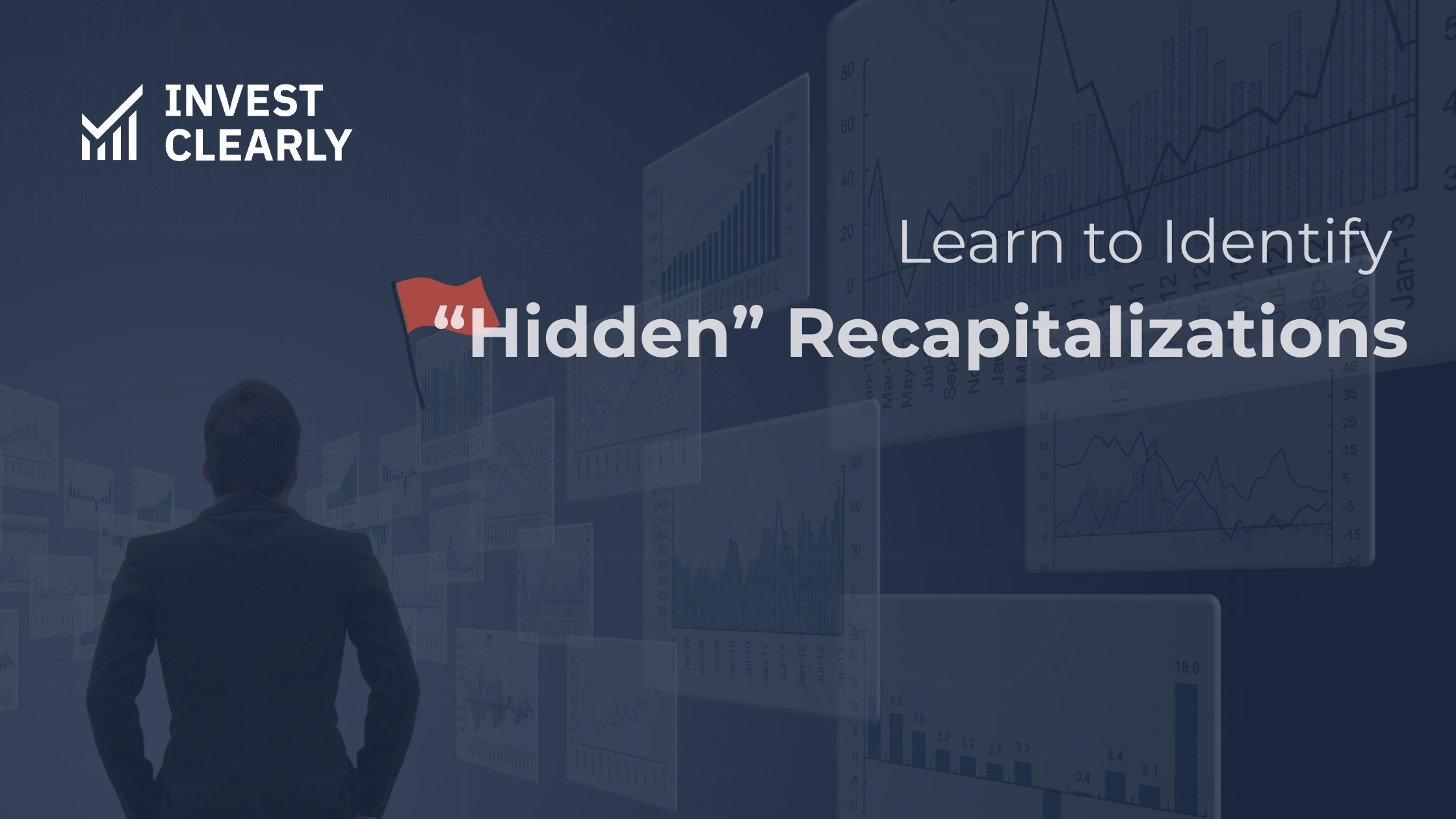
Real Estate Recapitalizations—What Passive Investors Need to Know
A recapitalization is a restructuring of a property's capital stack (the mix of debt and equity that finances an investment). While they can be legitimate business strategies, transparency can be an issue.
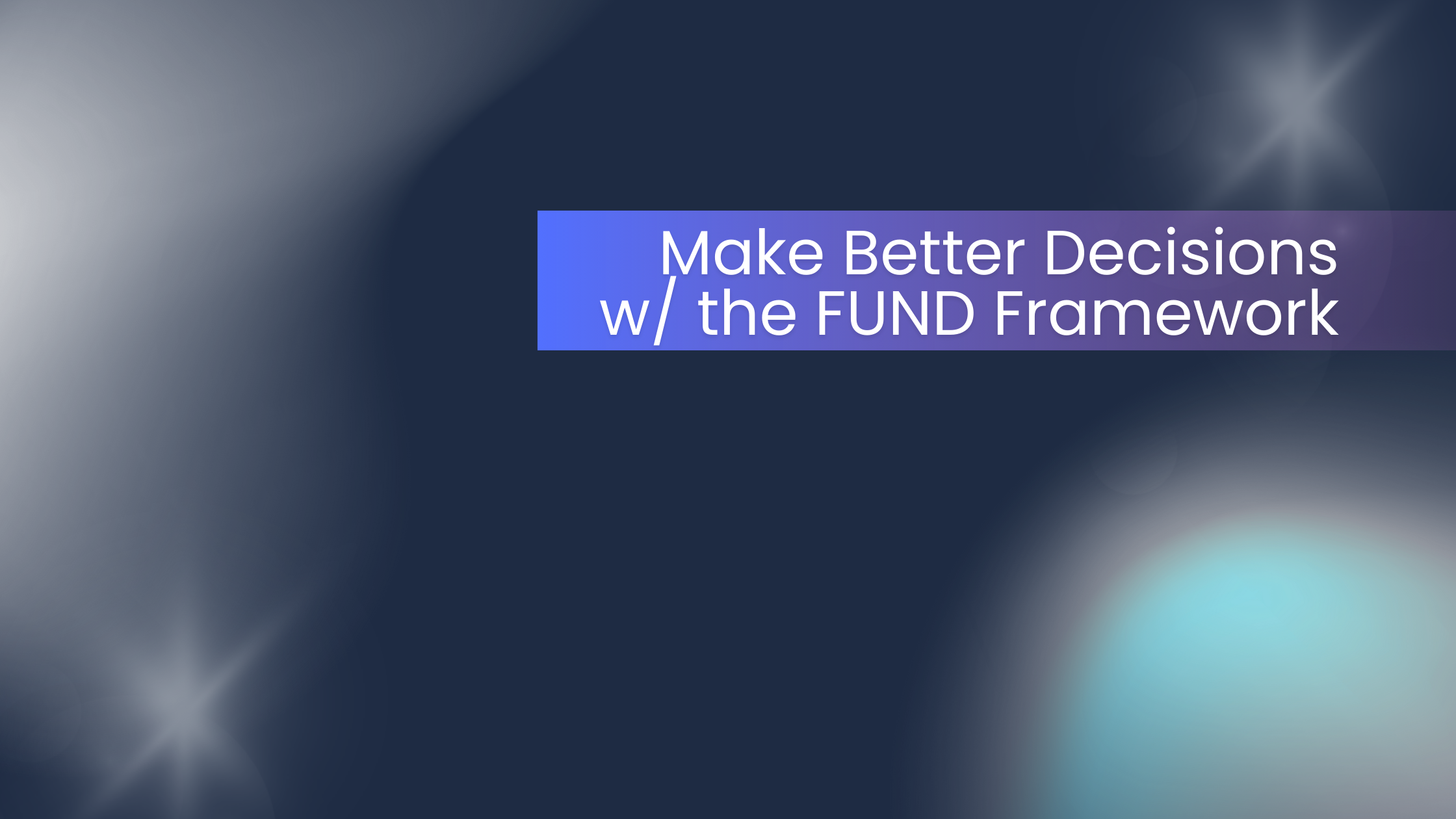
How to Evaluate a Potential Investment Using the FUND Framework
The FUND framework is a simple way to evaluate opportunities by looking at four pillars: Financials, Underlying Assets, Notable Differentiator, and Delegation of Responsibilities.
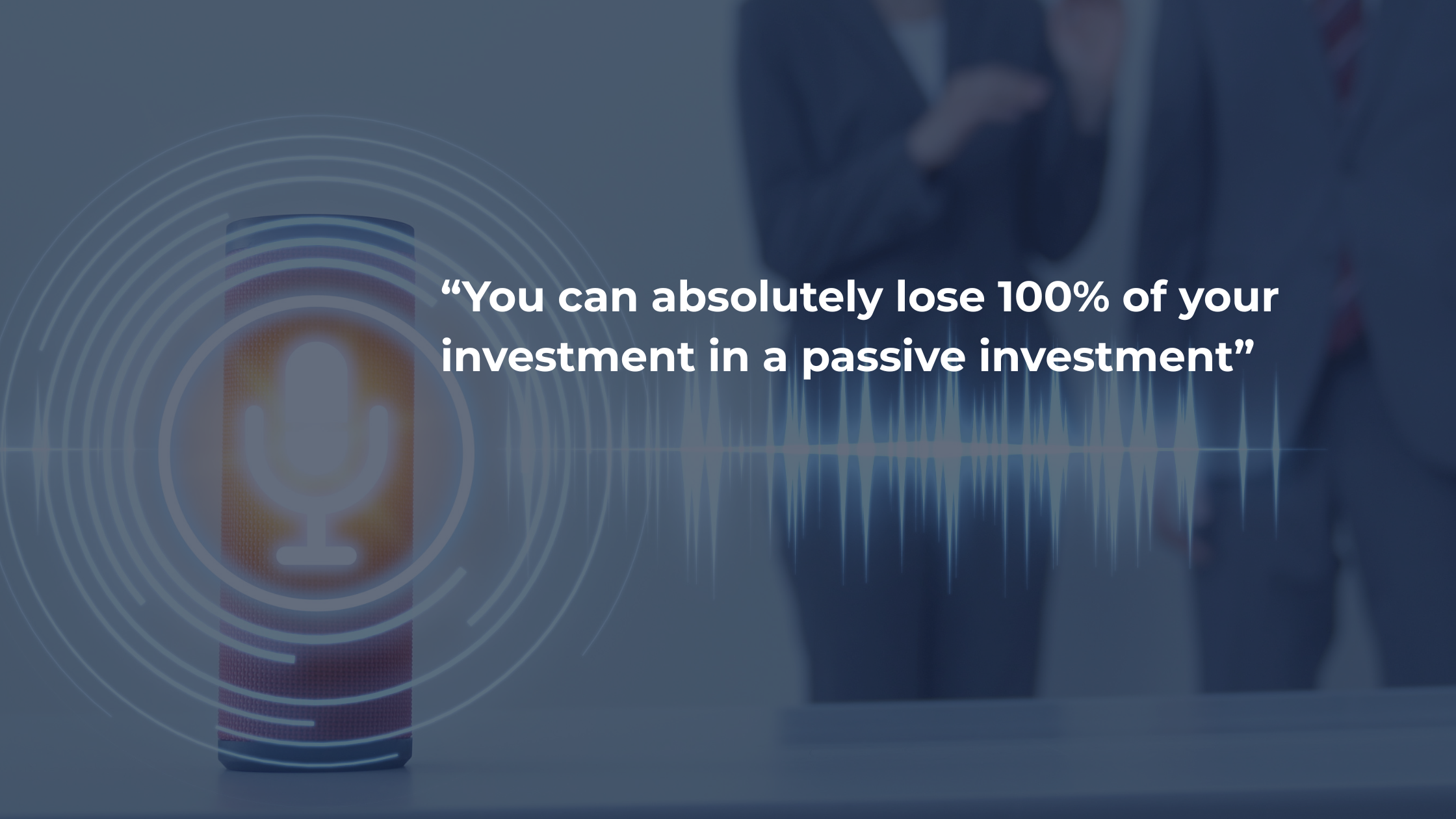
What Needs to “Die” in Passive Investing – According to Guests of The Invest Clearly Podcast
Get the answer to the closeout questions of each podcast episode: “What do you think needs to die in passive investing?” The answers are wide-ranging, from misconceptions about risk, to misleading marketing tactics, to structural issues in how deals are presented.

Passive Real Estate Investing Advice from Experienced LP Investors
Experienced LPs shared their most valuable lessons, drawn from years of investing across various asset classes and sponsor relationships.
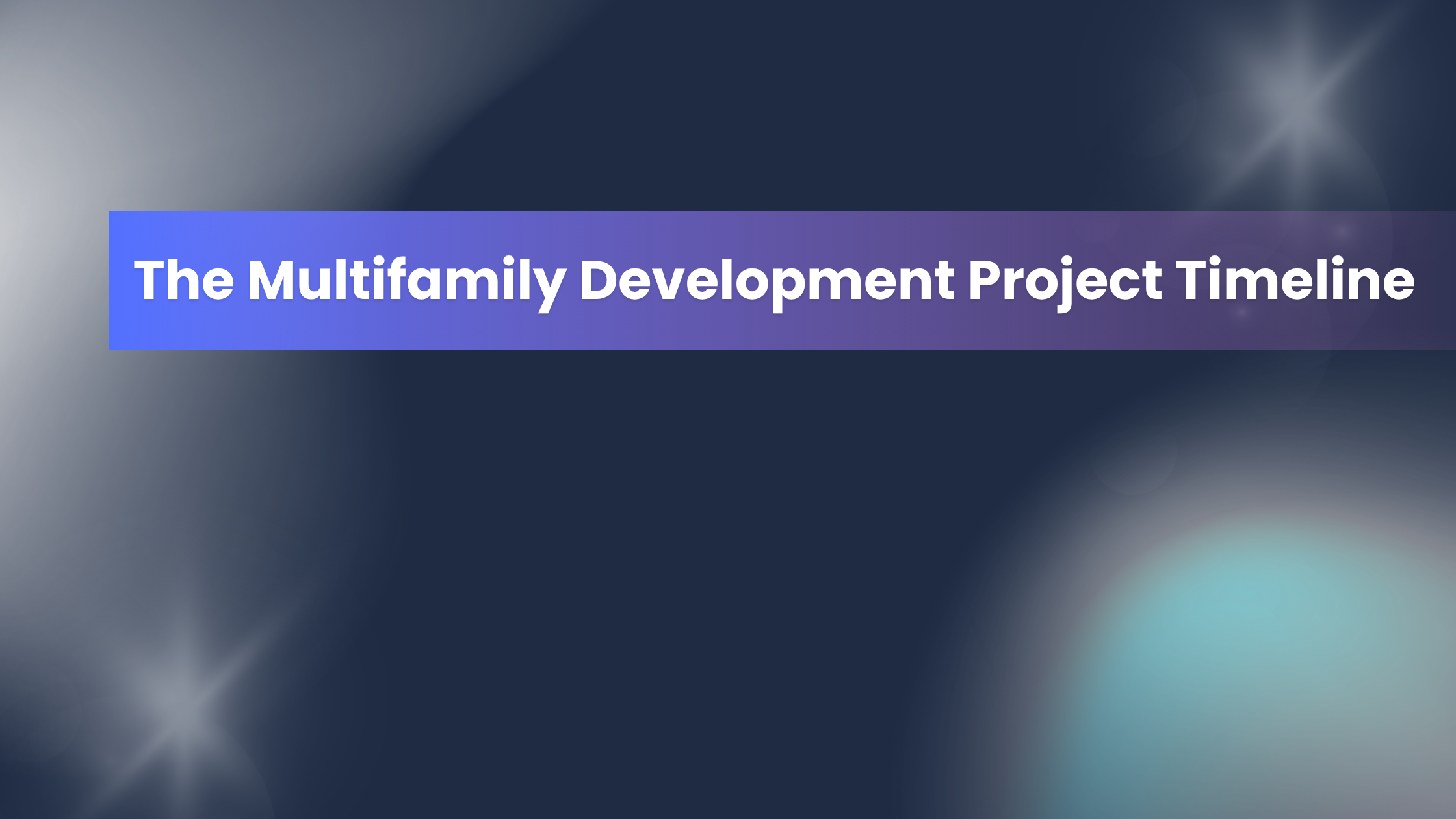
From Land to Lease-Up: The Lifecycle of a Multifamily Development Deal for LPs
This guide walks you through the typical timeline of a multifamily development project from the LP perspective. Learn when investors come on board, what happens during construction and lease-up, and how profits are realized at exit.